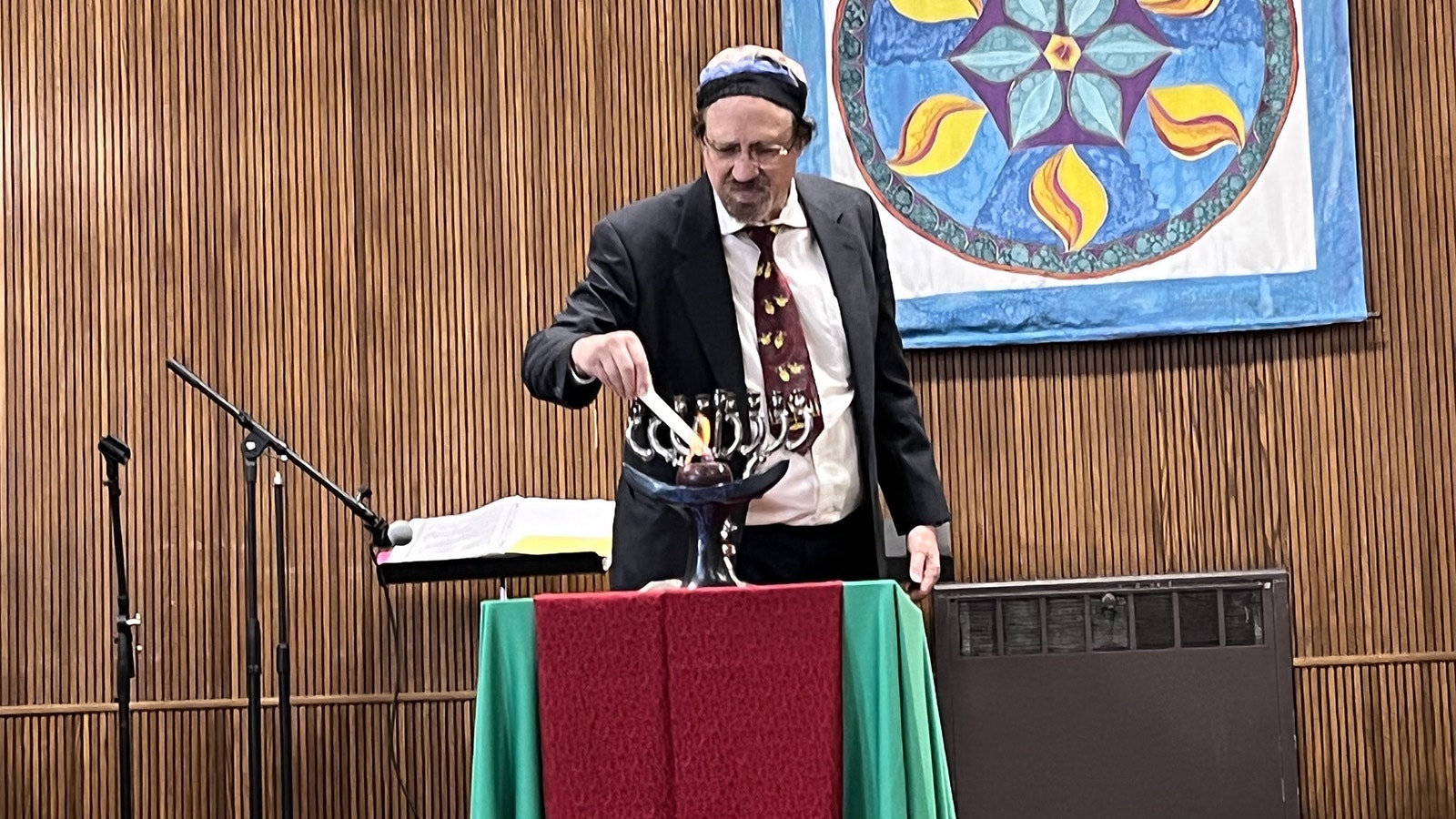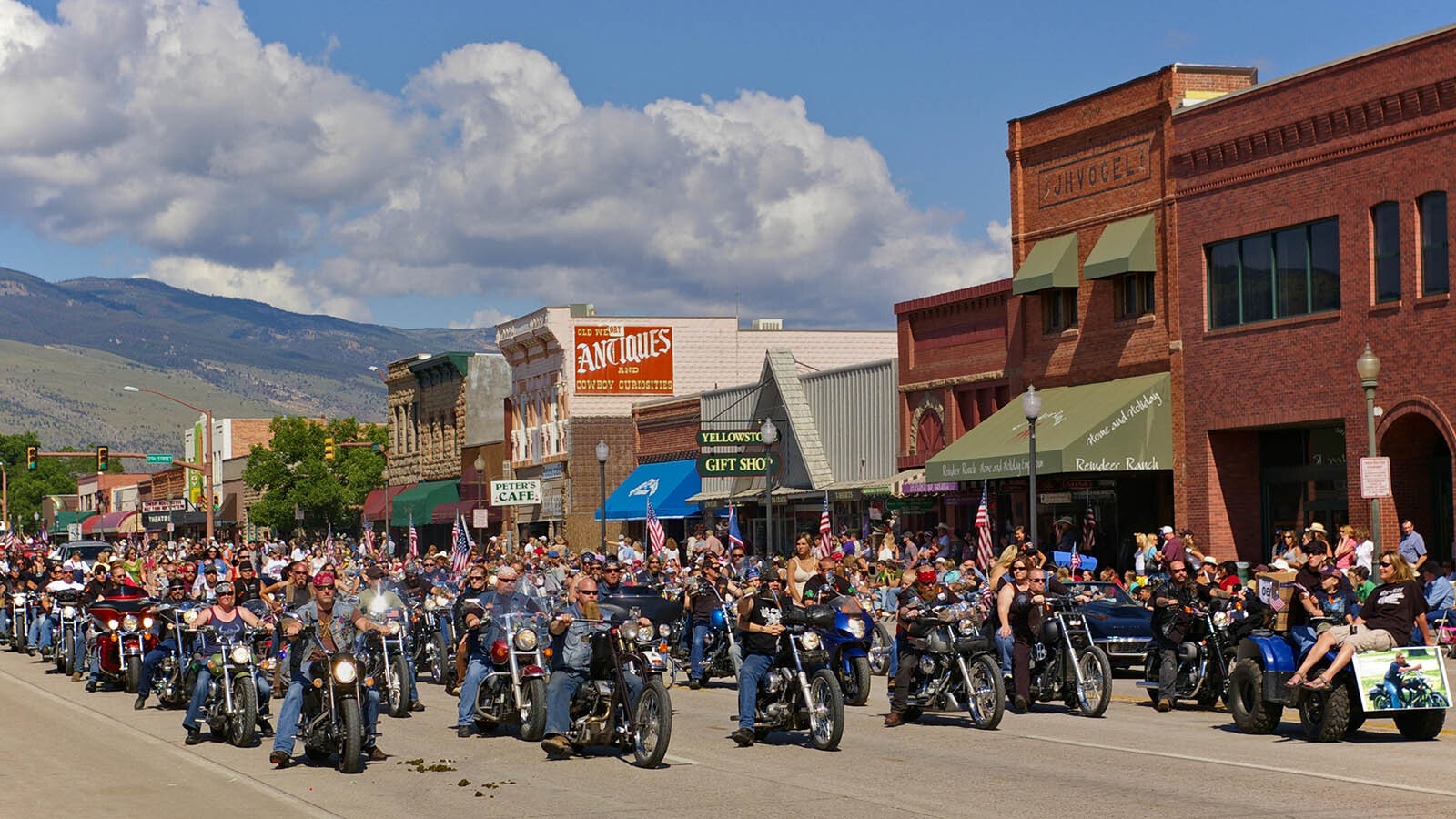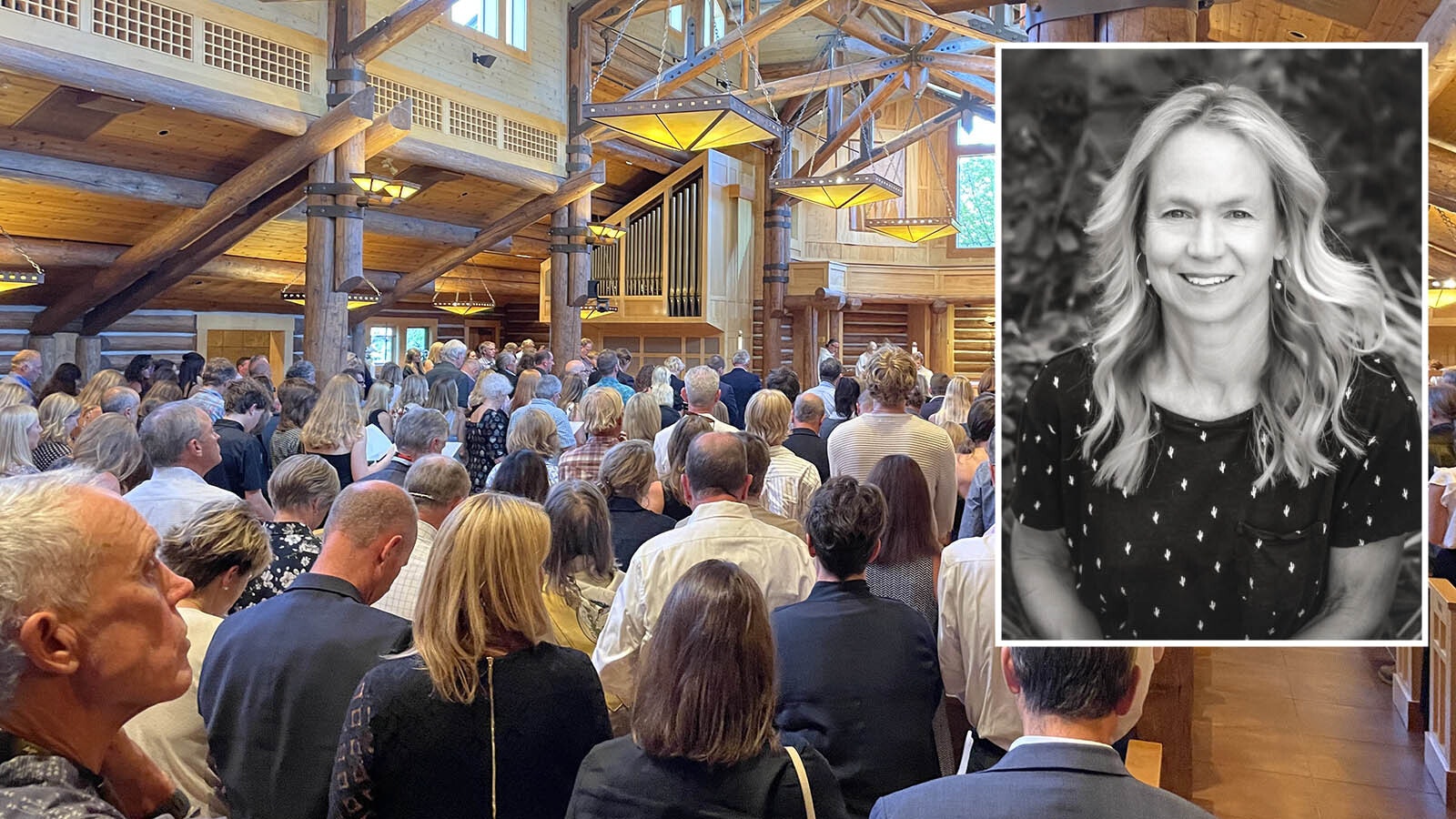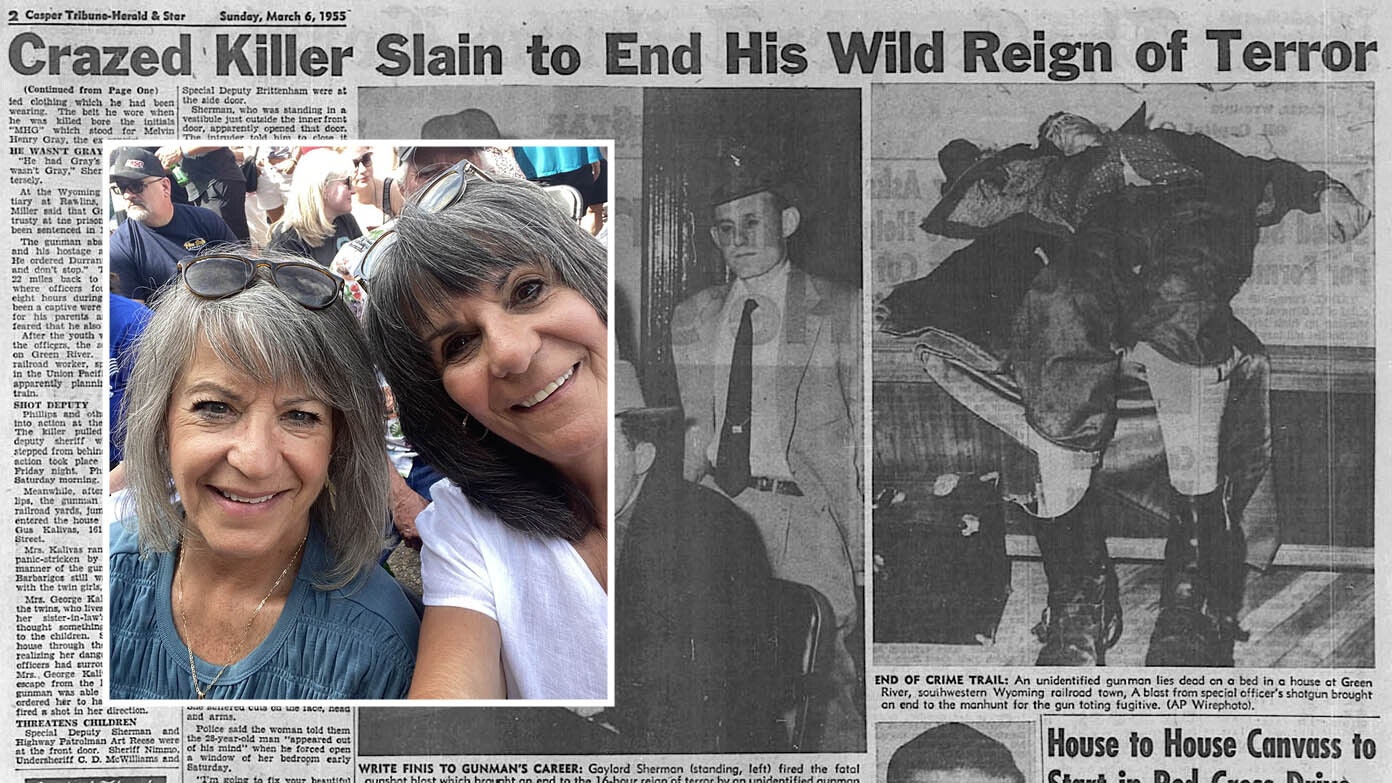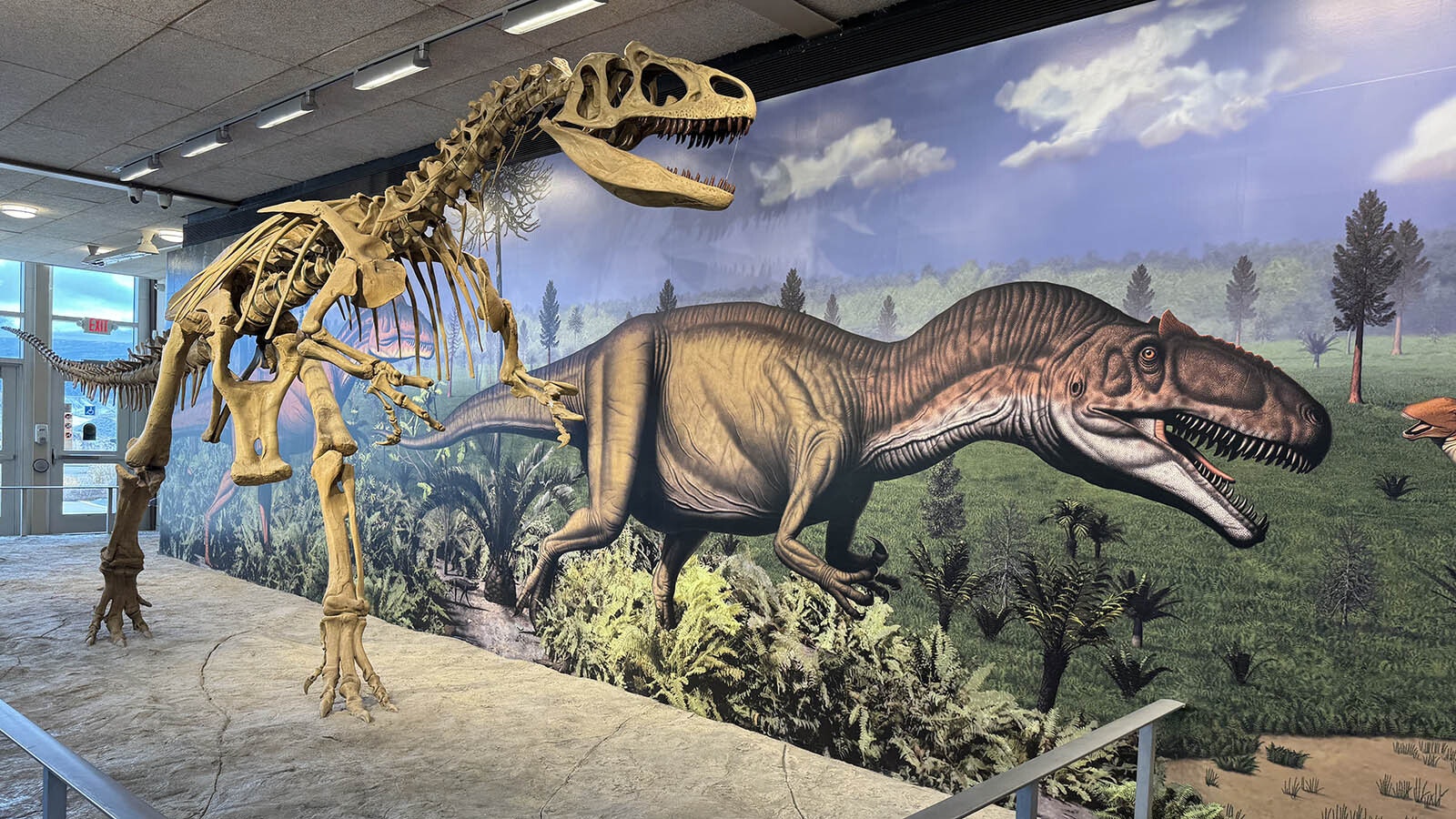By Leo Wolfson, Cowboy State Daily
Leo@Cowboystatedaily.com
It was not a Torah or a Bible that Rabbi Moshe Halfon held up to the audience at the Unitarian Universalist Church of Cheyenne on Sunday.
It was an electric guitar.
“I am a very unusual rabbi,” Halfon explained. “I play drums, I dance with Nigerians, I meditate with Buddhists and I’ve been with pagans.”
Expanding Horizons
Halfon, rabbi of the Mt. Sinai Congregation in Cheyenne, was at the Unitarian Church in honor of Hanukkah, an eight-day celebration of Jewish faith commemorating the recovery of Jerusalem and rededication of the Second Temple.
Hanukkah began Sunday and runs through Monday. The holiday is celebrated with lighting of menorahs, traditional Jewish foods, games and gifts.
Although much larger at one time, Cheyenne still has a roughly 50-member Jewish community. The membership of the Unitarian Church is around 190.

Diverse Spiritual Backgrounds
Hosting spiritual leaders from other religious denominations is not unusual for the Unitarian Church.
“Our faith draws from and honors a lot of works,” said church member Rhonda Wooodward. “We really want to be as diverse as we can and inform about other cultures.”
In many ways, this openness is a reflection of the diverse spiritual backgrounds the church’s members possess.
For instance, practitioner Marcie Kindred grew up in a Mormon household in southern Utah.
“Unitarian Universalists know that how an individual connects with God is deeply personal and different for every individual,” Kindred said. “UU’s are not so worried about the what, but how we apply our shared values in the here and now with each other and our communities.”
Halfon started his service by lighting the flaming chalice of the church, an important symbol in Unitarian Universalism.
“Don’t let the light go out,” Halfon said. “The lights all over the world, there are lights that are being threatened.”
Story Of Hanukkah
Halfon has a modern approach in his delivery, explaining ancient Jewish history in a way younger audiences are more likely to comprehend.
He made comparisons to the American Revolution and the Ukraine War.
He also told the story of Hanukkah.
In 168 B.C., the Israelites of Jerusalem were invaded and had their Second Temple destroyed by the Syrians, who sacrificed pigs inside and erected an altar to Zeus.
After eventually beating back the Syrians to regain entry into their temple, the Judeans found only one small jar of olive oil blessed by a high priest remaining. They used this scant amount of oil to relight the temple’s menorah, which was meant to be kept burning eternally.
“What if you had 2% (battery) on your phone but your phone keeps working for four hours?” Halfon said. “What a miracle that would be.”
Lasted For Eight Nights
According to legend, even though there should have only been enough oil to keep the menorah’s lamps burning for one night, the oil lasted for eight nights, leaving enough time for the Judeans to find a fresh supply before the menorah burned out.
And from there, Hanukkah was born.
On each of the holiday’s eight nights, another candle is added to the menorah after sundown. The ninth candle is used to light the others.
Jews recite blessings during this ritual and display the menorah prominently in their windows to remind others of the miracle that inspired the holiday.
“Light brings joy to the world,” Halfon said. “Light brings joy to our hearts, especially in the winter.”
Coming Together
Audrey Bunten, a member of the church, said experiencing other religions and cultures is an important piece of the Unitarian spiritual journey.
She said the covenant of the Universalist church is made up by “love,” “service,” and the mission “to dwell together in peace, to seek truth, and to help others.”
This is a similar goal of the Wyoming Interfaith Network. The Network is run by spiritual leaders from around the state, working to provide diverse voices to help communities challenge religious and political extremism.
The organization regularly hosts a Mosaic of Faith online series that features various faiths. An Episcopalian monk was on one recent show, while another talk focused on Buddhism.
The Rev. Annmarie Delgado is executive director of the Network and serves at the Church of the Good Shepherd in Sundance.
“It’s important so that we get to know our neighbors,” Delgado said. “It helps find common ground and work and grow, rather than find differences.”
History Repeats
Delgado said hosting multi-faith events under one roof is important for society.
But in a state like Wyoming, where many towns have an extremely limited number of religious institutions and sometimes none, coming-together moments like the recent one in Cheyenne can be difficult to organize.
Halfon sees similarities between the many instances of Jewish persecution and the plight of modern-day Ukraine in its war with Russia. He finds the war one of many examples of cultural oppression that’s played out countless times over the course of Western civilization.
“We’re witnessing exactly the same story,” he said. “A dominant power coming in not only saying, ‘We’re going to conquer a nation,’ but he (Russian President Vladimir Putin) says, ‘You’re really Russians, you know, there’s no difference between us.’”
Practice Tolerance
Halfon spoke on the importance of tolerance, diversity and accepting others who are different in society. As an example, he said that the only Bar Mitzvah he has performed this year was for a transgender boy.
“Isn’t that amazing?” he said. “It was pretty incredible. I celebrated it.”
He also spoke of how religion is an expression of the people, not the spiritual leaders who explain it.
“Hanukkah was a people’s holiday before it was the rabbi’s,” Halfon said.
It’s a humble statement, but not a surprising one for a man who has served as a rabbi, cantor, hillel director, chaplain, musician and special education teacher, as well as providing spiritual services in prisons.
He also is an accomplished guitarist and singer and can perform Hebrew, Yiddish, Latino, Middle Eastern, blues, jazz and folk music, and has his own album of Jewish healing chants.
Strumming out “Light One Candle” by Peter, Paul and Mary on his electric guitar with Bunten singing by his side, the pair got the whole audience singing along Sunday.
“And now, after singing ‘Don’t Let the Light Go Out,’ it’s time to extinguish our chalice,” Bunten said with a laugh, finishing out the service.

